2018 Student Paper Competitions Award Winning Abstracts
Congratulations to the student paper competition winners and honorable mentions! The student paper competitions awards are proudly sponsored by the Divisions.
COMMUNITY RESEARCH AND DEVELOPMENT DIVISION
 |
Winning Title: "The Contemporary Defended Neighborhood: Maintaining Stability in a Diverse Community"
Author: Joy Kadowaki
Affiliation: University of Dayton
E-mail: jkads9@gmail.com
Abstract:
This paper examines the social processes of collective efficacy and maintaining stability in a diverse neighborhood. The data are drawn from an ethnography of Beverly, a stably diverse, middle-class neighborhood on Chicago’s far southwest side. I argue that neighborhood defense operates as a central mechanism for maintaining neighborhood stability and operates as both an important outcome and facilitator of collective efficacy. Residents of Beverly defend their neighborhood through various strategies, such as informal surveillance, cultivating neighbors, displaying defense through signage, and the creation of an insider housing market. The conflation of blackness with outsiderness and social disorder complicates neighborhood defense with discriminatory implications for black residents in Beverly. These findings broaden the applicability and usefulness of the defended neighborhood theory for explaining the social processes of collective efficacy and neighborhood stability. Additionally, this analysis provides a critical interrogation into the process of maintaining stable diversity in a defended neighborhood.
CONFLICT, SOCIAL ACTION, AND CHANGE DIVISION
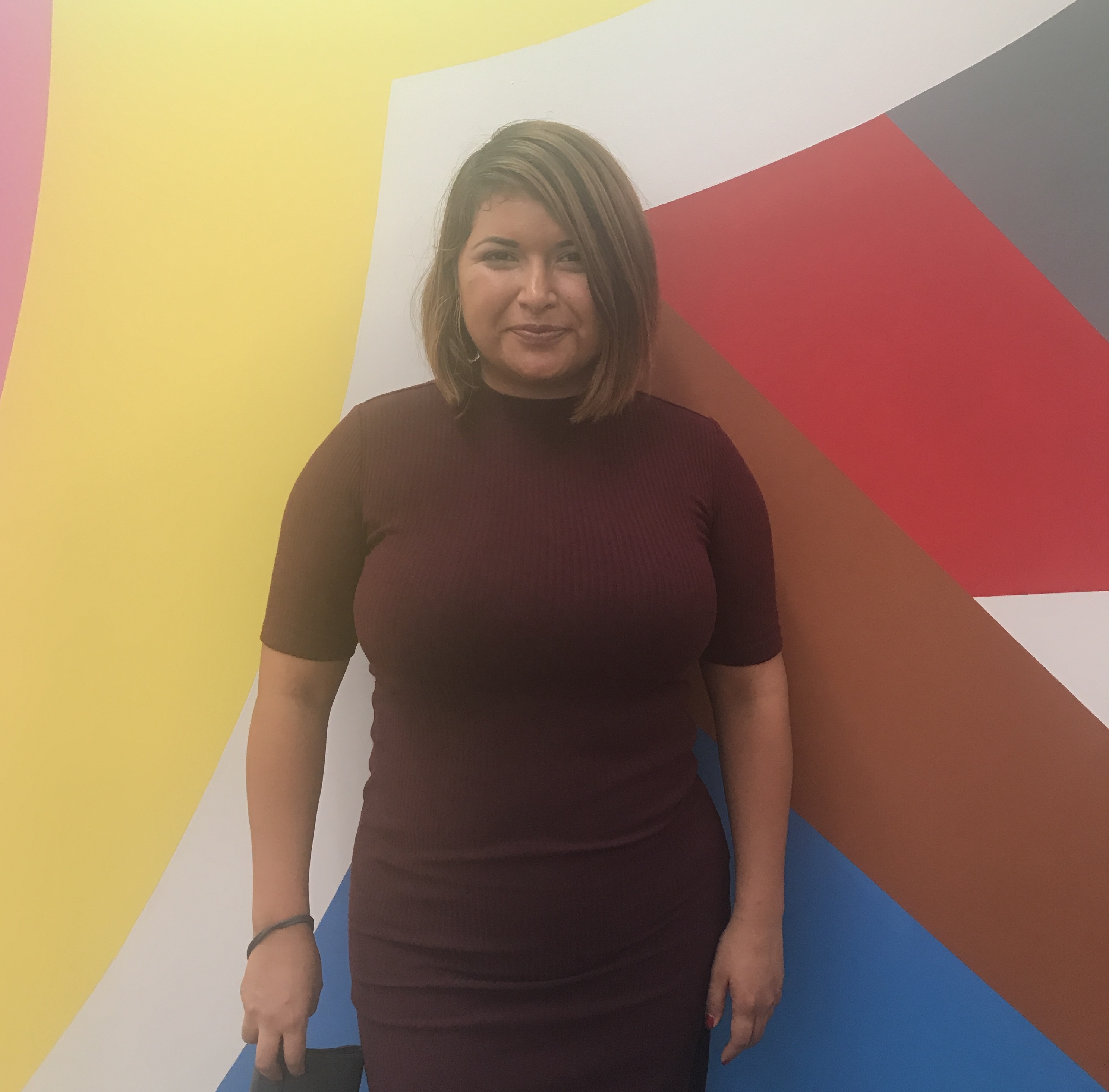 |
Winning Title: "Displacing Natives: Social Movement Influence over Mascot Change at Colleges and Universities"
Author: Noemi Linares-Ramirez
Affiliation: University of California, Irvine
E-mail: linaresr@uci.edu
Abstract:
Social movement theorists have examined how targets weigh different economic and reputational costs in granting concessions to social movements. I consider how the vulnerability of targets changes over time depending on the presence of broad-based coalitions, which alters environmental norms and costs of conceding. As more resistant targets concede, norms begin to shift in favor of challengers, which further pressures targets that have not conceded. By addressing how the costs for conceding and resisting evolved over time, I elaborate a temporal cost assessment model to demonstrate why and when targets concede. I use all colleges and universities with Native American mascots, between 1968 and 2015, to demonstrate why and when institutions removed stereotypical Indigenous representations for their sports teams mascots. I employ Qualitative Comparative Analysis (QCA) to examine the conditions that led to schools dropping their Native American mascot. This study demonstrates the different patterns of social movement pressure, target characteristics, and temporal costs that aid in concessions to social movement organizations.
 |
Honorable Mention Title: “Hearing from Both Sides: The Role of Dual-narrative Tours in Global Movements for Social Justice, Resistance, and Change in Israel/Palestine”
Author: Emily Schneider
Affiliation: University of California, Santa Barbara
E-mail: schneider@umail.ucsb.edu
Abstract:
With tourism as the primary vehicle by which individuals experience foreign peoples and places, scholars have recognized the importance of tourism as a mechanism to mobilize international networks for social change. Though both Israelis and Palestinians employ tourism to advance their political interests, the Israeli state maintains near total control over the tourism industry, which in turn prevents foreign tourists from accessing Palestinian perspectives on the Israeli-Palestinian conflict. This paper explores the impacts of dual-narrative tours that guide tourists through Israel and the West Bank using both a Palestinian and Israeli guide on the same tour. Through an analysis of 218 post-tour surveys, this study examines the impact of dual-narrative tours in terms of changes in participants' attitudes and motivations to promote peace and justice in Israel/Palestine. Dual-narrative tours appear to be uniquely successful in shifting participants' opinions about the conflict. In general, participants become more supportive of both Israelis and Palestinians and find the conflict to be more complicated than they previously thought prior to the tour. The tours also motivate tour attendees to become active in their home communities. Participants report a desire to spread awareness through educating their local communities, put pressure on the US government, and financially support NGOs dedicated to peacemaking in Israel/Palestine. As the first study of dual-narrative tours to Israel/Palestine, these findings demonstrate the transformative power of tourism to both shift tourists’ perceptions of previously stigmatized populations, as well as tourism’s ability to cultivate engagement in transnational efforts for social change.
CRIME AND JUVENILE DELINQUENCY DIVISION
 |
 |
Winning Title: “Luck of the Draw: Exploring the Effects of Parole Board Composition upon Parole Release Decisions”
Authors: Kristen L. Hourigan (left) and Allison Houston (right)
Affiliation: California State University, Los Angeles and University at Albany, SUNY
E-mail: khourig@calstatela.edu and ahouston@yourdatamatter.com
Abstract:
Prior work on youth-police relations has examined young people’s general perceptions of the police, their differential treatment by police officers, and officers’ discretion in dealing with youth. Yet, researchers have largely neglected the question of how young people attempt to shape these encounters. I address this critical gap, while also incorporating the experiences of “on track” youth and young women—two groups that are not exempt from personal and vicarious police contact, but are traditionally ignored in the youth-police literature. Drawing on semi-structured group and individual interviews with 19 young people living in New York City, I investigate the strategies they employ or subscribe to in navigating police contact. Three types of strategies emerged from my analysis: avoidance, management, and symbolic resistance. Avoidance strategies are marked by young people’s attempts to preemptively steer clear of officers on the street. Management strategies are employed by young people during police encounters to limit risk or harm, while symbolic resistance is a technique used by some youth to preserve their dignity in these interactions. Findings also offer new insights into how black youth assess their police interactions in an era of highly publicized incidents of police brutality.
DISABILITY DIVISION
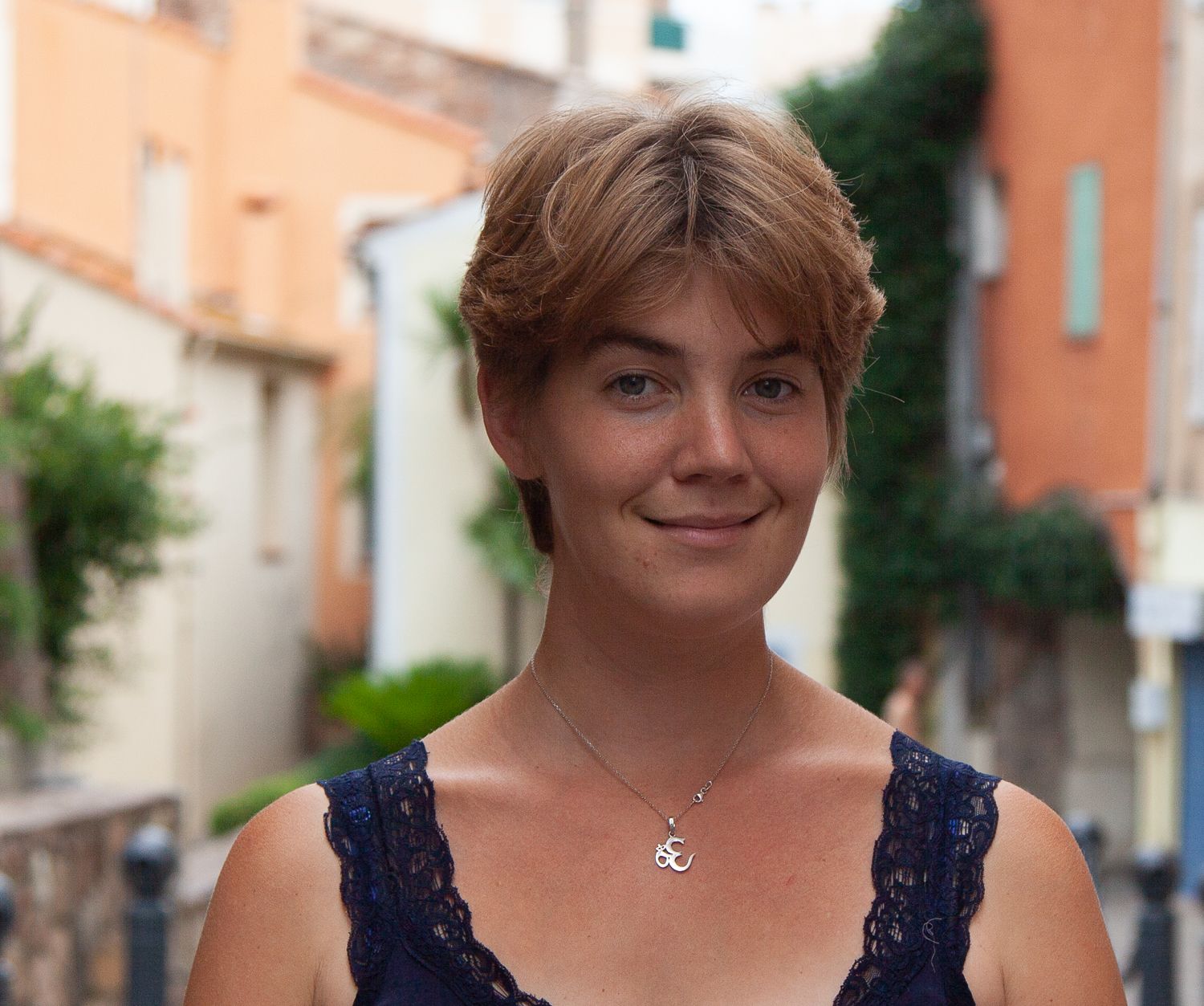 |
Winning Title: “Tell me your Story – Quota Compliance and the Pitfalls of new Recruitment Tools”
Author: Lisa Danielle Buchter
Affiliation: Northwestern University, Sciences Po Paris (France)
E-mail: lisabuchter2017@u.northwestern.edu
Abstract:
Many scholars pointed out that anti-discrimination laws do not fully undermine workplace discrimination and observed that diversity policies mostly benefit over-qualified or advantaged individuals within minorities. To elucidate this paradox, this case study analyzes how companies transform the selection and assessment processes of minority job-seekers after the implementation of a quota. My empirical case explores the consequences of the reinforcing of a quota of disabled workers in France: creation of alternative recruitment channels, hiring of disability experts for recruitment, refusal of resume sorting as a pre-screening tool, and emphasis on face-to-face interviews. I find that these changes helped more people get hired, but also compelled more personal disclosure that both led to more emotional assessment of job candidates and enabled “refined statistical discrimination” within pools of disabled job-seekers. This impacted the expectation of career advancement for new employees with disabilities and condemned people with more severe disabilities to remain unemployed.
DRINKING AND DRUGS DIVISION
 |
Bruce D. Johnson Paper Winning Title: “Multiple Victimizations and Overdose among Women in a Harm Reduction Program”
Author: Janna Ataiants
Affiliation: Drexel University
E-mail: jataiants@gmail.com
Abstract:
Objectives. The purpose of this study is to ascertain whether specific forms and perpetrators of violence during adulthood increase women’s risk of overdose.
Methods. The study utilized cross-sectional data from 218 women at a harm reduction program in Philadelphia during 2016-2017. Adulthood violence was assessed as exposure to 16 types of violence and 6 perpetrator types. Exposures were categorized into five measures for multiple victimizations: continuous and categorical polyvictimization, multi-perpetration, predominant violence domain, and predominant perpetrator type. Negative binomial regression estimated the incident rate ratio (IRR) of lifetime overdoses from individual and multiple victimizations and perpetrators.
Results. Participants reported a mean of 7 victimizations and 3 perpetrator types. Among overdose survivors (69%), the median of lifetime overdoses was 3. In multivariate models, one-unit increase in polyvictimization was associated with 4% higher overdose rate (95%CI:1.00-1.08). Compared to women who were not victimized (11.5%), those in the higher-score category of polyvictimization (IRR:2.01; 95%CI:1.06-3.80), predominantly sexual violence (IRR: 2.10, 95%CI: 1.13-3.91), and predominantly intimate partner violence (IRR:1.93, 95%CI:1.05-3.56) had higher overdose rates.
Conclusions/Importance. Exposure to adulthood violence amplifies the risk of overdose. Findings underscore the need to scale-up overdose prevention and victimization support services for marginalized drug-involved women. Women with a history of multiple overdoses should be screened for exposure to a high number of victimizations, sexual assaults, and intimate partner violence.
EDUCATIONAL PROBLEMS DIVISION
 |
|
Winning Title: “The Intensity of College Preparation and Socioeconomic Background: A Mechanism for Equal Access?”
Author: Kevin McElrath
Affiliation: Stony Brook University
E-mail: kevin.mcelrath@stonybrook.edu
Abstract:
Intradistrict school choice policies necessarily impose registration deadlines, yet the role of registration timing as a mechanism for inequality is overlooked in research on school choice. Drawing on administrative data as well as interview and survey data on parents registering late for Boston Public Schools, we examine the characteristics of late registrants, the contexts under which late registration occurs, and its implications for families. Late registration is common: More than one in three kindergarten students register after the first deadline and one in ten registers over the summer. By the time these students register, fewer schools, particularly high-performing schools, have available openings, reducing access to schools of choice for late registrants. This experience is highly stratified, with Black and Hispanic kindergarteners approximately three times as likely as their White peers to register late. Our qualitative data reveals that contexts of instability and bureaucratic complexity serve as barriers to registering months in advance. Further, late registrant families describe disempowerment and disengagement from the school system following their late registration. These findings identify a tradeoff inevitable in school choice: despite claims of equal access, district policies such as timeline-based lotteries hinder many families, including those disadvantaged already, from fully participating. Inequality in school choice outcomes and experiences is therefore a consequence not only of parents’ selections, the focus of previous research, but also a result of the misalignment of family situations and information with district processes.
ENVIROMENT AND TECHNOLOGY DIVISION
 |
 |
Brent K. Marshall Paper Winning Title: “Contradictions of Solidarity: Whiteness, Settler Coloniality, and the Mainstream Environmental Movement”
Author: Joe Curnow (left) and Anjali Helferty (right)
Affiliation: University of Toronto
E-mail: joe.curnow@utoronto.ca and anjali.helferty@mail.utoronto.ca
Abstract:
In this article, we trace the racialized history of the environmental movement in the US and Canada that has defined the mainstream movement as a default white space. We look to theories of solidarity for potential as an intervention into the racialized and colonial practices and logics of mainstream environmentalism. We then review the literature that interrogates the contradictions of solidarity, focusing on how solidarity philosophies resist and reproduce processes of racialization and whiteness. We argue that the contradictions of solidarity do not preclude settler attempts to build deeper solidarities, but require full awareness of the racialized and colonial practices of environmentalism and the ways solidarity and coalition work may reinscribe those relations.
FAMILY DIVISION
 |
Winning Title: “Extended Family Households among U.S. Children: Differences by Race/Ethnicity and SES”
Author: Christina Cross
Affiliation: University of Michigan
E-mail: crosscj@umich.edu
Abstract:
This study uses nationally representative longitudinal data from the Panel Study of Income Dynamics, to examine the prevalence and predictors of extended family households among children in the United States and to explore variation by race/ethnicity and socio-economic status (SES). Findings suggest that extended family households are a common living arrangement for children, with 35 per cent of youth experiencing this family structure before age 18. Racial/ethnic and SES differences are substantial: 57 per cent of Black and 35 per cent of Hispanic children ever live in an extended family, compared with 20 per cent of White children. Further, 47 per cent of children whose parents did not finish high school spend time in an extended family, relative to 17 per cent of children whose parents earned a bachelor's degree or higher. Models of predictors show that transitions into extended families are largely a response to social and economic needs.
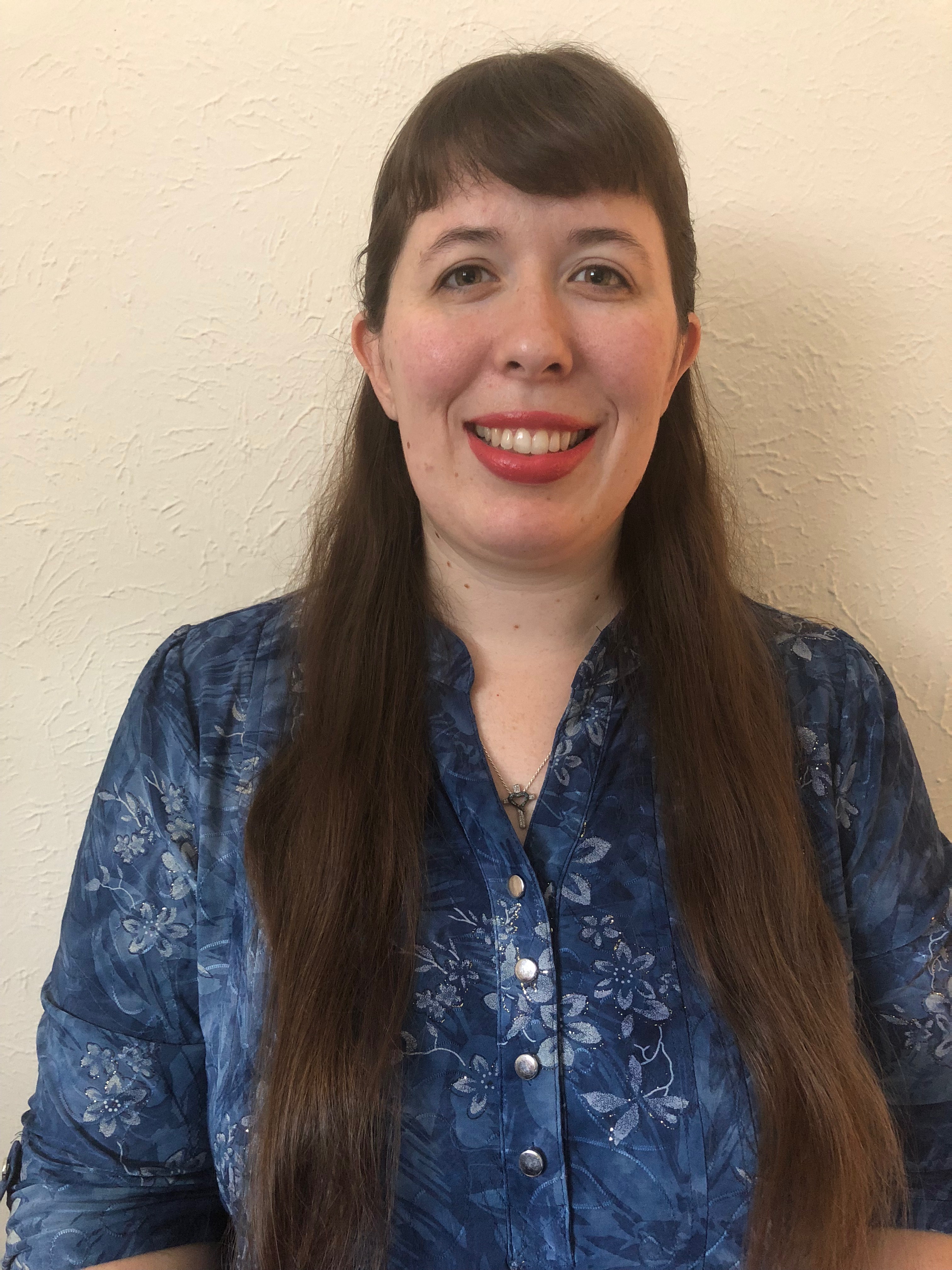 |
Runner-Up Title: “Racial Disparities in the Foster Care System”
Author: Bethany Smith
Affiliation: Baylor University
E-mail: bethany_smith2@baylor.edu
Abstract:
Introduction. Previous research has revealed a number of negative effects resulting from lingering in the foster system. Racial disparities in the system present several additional challenges for children of color, especially African Americans. To improve outcomes for this vulnerable population, further research is needed to determine how to address these issues. This study aims to examine how religious congregations may affect some of the factors contributing to longer lengths of stay in the foster care system and also how these effects vary by race.
Data and Methods. The dependent variable for this study is a measure in days of the time a child has spent in the foster care system. The main independent variable is race, which was measured with a series of three binary variables, for black children, white children and children of other races to include biracial and unknown. The secondary independent variable consists of the rate of religious congregations per 10,000 people in each of the 50 U.S. states as well as the District of Columbia. Control variables for this study include gender, age, diagnosed physical and mental issues and reasons for the child’s removal from their original caretaker. My hypotheses were tested using OLS regression and multilevel modeling.
Results. The results from these analyses show consistent, significant effects of religious congregation concentration at the state level and race at the individual level. By showing the much longer average stays in foster care by black children than by white and non-black minority children, it also demonstrated the disadvantages faced by children of color in foster and potential adoptive situations and indicated that black children especially may face particular obstacles. These effects remain strong and consistent in all models. There does not appear, from this study, to be an interaction between the religious congregations and race effects.
Global Division/ Critical Sociology
 |
Winning Title: “Making Cold War Migrants: Vietnamese in Divided Germany”
Author: Phi Hong Su
Affiliation: University of California, Los Angeles
Email: phi.h.su@gmail.com
Abstract:
This paper offers a strategic case for understanding how (inter-)state policies generate varied migration flows, by comparing two groups of migrants who originated from what became the same country (Vietnam) and arrived in two countries that later became one (Germany). Specifically, I focus on refugees, who began arriving in West Germany in the late 1970s, and contract workers, who arrived in East Germany through temporary labor programs starting in 1980. I ask: Under what migratory channels did Vietnamese arrive in West and East Germany? And how do refugees and immigrants make sense of their decision-making processes and motivations? The paper starts from Aristide Zolberg and colleagues’ (1989) treatment of refugees as differentiated from other types of migrants through violence. However, my findings reveal that some who did not anticipate violence still fled and received recognition as refugees, while others who experienced state violence at times stayed in Vietnam and only later became economic migrants. Drawing on historical-legal developments and interview narratives of individuals’ migration experiences, I trace how political circumstances channeled Vietnamese into the label of political or economic migrants, despite an overlap in their motivations for emigrating.
HEALTH, HEALTH POLICY, AND HEALTH SERVICES DIVISION
 Winning Title: “Embodied Disruption: ‘Sorting Out’ Gender and Nonconformity in the Doctor’s Office”
Winning Title: “Embodied Disruption: ‘Sorting Out’ Gender and Nonconformity in the Doctor’s Office”
Author: Emily Allen Paine
Affiliation: University of Texas at Austin
E-mail: e.paine@utexas.edu
Abstract:
Abstract: Among LGBTQ people, those who are gender nonconforming (GNC) may be at heightened risk of both discrimination and underutilization of healthcare—yet little is known about what happens during healthcare encounters to compel GNC individuals to continue or avoid seeking future care. This study qualitatively examines the healthcare experiences of a racially diverse sample of 34 adult LGBTQ cis women, transgender men, and nonbinary individuals in a metropolitan area of the United States who do not conform to dominant biomedical schemas of sex and gender. GNC individuals experience embodied disruption in medical settings when patients are mis/recognized; providers respond to disruption in ways that further distress patients. Broadly, participants reported similar experiences across racial and gender identities, but patients manage disruption somewhat differently depending on their embodied positions to gender norms. This study contributes to literatures of stress, stigma, and sex, gender and sexuality within medicine by illuminating how stigmatizing healthcare interactions work to deter LGBTQ individuals from seeking healthcare. Findings point to the importance of considering both structural factors and embodied visibility in future research addressing how stigma and discrimination manifest within health settings to disadvantage LGBTQ groups.
INSTITUTIONAL ETHNOGRAPHY DIVISION
 George W. Smith Paper Winning Title: "The ‘Equity Work’ of the Activist Educator: Critical Re-imagining of Schools"
George W. Smith Paper Winning Title: "The ‘Equity Work’ of the Activist Educator: Critical Re-imagining of Schools"
Author: Alison Fisher
Affiliation: York University
E-mail: alison_fisher@edu.yorku.ca
Abstract:
In this paper, I begin with the everyday experiences of activist teachers in the classroom, to make visible how changing soci-historical conditions in Ontario, Canada (i.e. declining birth rates) combined with particular manifestations of managerial and risk discourses applied to educational governance in the province of Ontario, have (re) organize(d) a teacher’s workday and their approach to curriculum in particular. From 2016- 2018, I conducted in-depth semi-structured interviews with approximately 19 school staff, the majority of whom are engaged in equity activism within schools. In this paper, I explore how specific discourses of student achievement, measurement, safety, and risk are impacting teachers’ approaches to curriculum and shaping the limited resources that are available to classroom teachers to engage in complicated and intersectional approaches to gender and sexual equity in schools. With a particular focus on activist educators, I illustrate their strategic and deliberate engagements with counter hegemonic (critical race, feminist, queer, etc.) discourses, which challenge the predominance of specific neoliberal governance technologies. I argue that the curricular approaches of activist teachers in schools, creates, extends and maintains important pedagogical spaces for youth and staff to engage with the “democratic progressive” (Carlson, 2005) possibilities of schools despite the predominant constraints of a neoliberal imaginary of schooling.
LABOR STUDIES DIVISION
.JPG)
Author: Amanda McMillan Lequieu
Affiliation: University of Wisconsin-Madison
E-mail: ammcmillan@wisc.edu
Abstract:
Drawing on ninety interviews, participatory observation, and archival research in Iron County, Wisconsin and southeast Chicago, Illinois, I probe the puzzle of how former workers in two post-industrial communities navigate and narrate the structural and symbolic changes in class in the 20th century. I ask, why is the contemporary, blue-collar, middle class in a state of economic precarity? This manuscript aims to elucidate the mechanisms fostering the contemporary, economically precarious and socially peripheral status of the former industrial worker in the United States. The data demonstrates argue that the welfare work of these industrial firms constructed the citizenship of their communities as gendered, racialized, and dependent solely on the company for social safety nets. These intentional actions set the scene for complete privatization of social benefits, thus rendering blue-collar, middle class workers more vulnerable to company closure.
LAW AND SOCIETY DIVISION
.jpg) |
Alfred R. Lindesmith Paper Winning Title: “Ambiguity and Accountability: The Expansion of Legal Fines and Fees in Texas, 1985-2015"
Author: Kevin Dahaghi
Affiliation: University of Texas at Austin
E-mail: kdahaghi@utexas.edu
Abstract:
Across the United States, legal fines and fees generate millions of dollars per year in revenue, widen the net of criminalization, and increase penal severity for poorer individuals. Unlike other penal policies, legal fines and fees represent an ambiguous form of punishment that has received bipartisan support. Although legal fines and fees have become an increasingly preferred policy choice among state-level political actors, they are relatively understudied. In this study, I use archival data on legal statutes and legislative sessions in Texas – home to one of the largest prison and jail systems in the U.S. – to investigate the development of legal fines and fees across a 30-year period. I use insights from socio-political and legal theories to offer a comprehensive analysis of the structure of legislative policy networks and the legislative guiding of legal fines and fees. I demonstrate that both liberal and conservative political actors facilitated the passage of legal debt legislation. Furthermore, I consider the role of interest group actors to show the association between legislative testimony and the rate of legislation on legal fines and fees. I discuss the implications for understanding how policy networks and legislative activity are related to criminal justice outcomes and are influenced by a variety of social actors. This study contributes to theoretical explanations on the roles of state actors in developing policies that have become increasingly implicated in social and economic inequalities.
POVERTY, CLASS, AND INEQUALITY DIVISION
 |
Winning Title: “Economic Exchange and Relational Work within Doubled-up Households”
Author: Hope Harvey
Affiliation: Harvard University
E-mail: hopeharvey@fas.harvard.edu
Abstract:
Doubling-up, or sharing a home, is an important private safety net. In addition to providing needy families housing assistance, doubling-up often also economically benefits householders, as guests frequently contribute towards household expenses. Drawing on over 173 in-depth interviews with 60 doubled-up parents, I examine how families negotiate and contest economic arrangements within extended households. I find that successful intra-household economic exchange depends on not only the amount exchanged, but also the shared meanings behind exchanges. Though guests expect to make some material or in-kind contribution to the householder in return for housing, exchanges become contentious when household members disagree about the extent to which their relationship is social or economic. The absence of institutionalized expectations regarding doubled-up household relationships leaves members free to draw upon competing norms depending on their self-interest, framing the household as either a family-like solidarity unit or market-like direct exchange. However, conflict is mitigated by greater institutionalization of household relationships – as in multigenerational households – and by clear negotiation of exchange relationships prior to doubling-up. Economic arrangements and disputes reveal how doubled-up parents understand their household relationships, help explain the instability of double-ups, and contain insights about the conditions under which money either damages or sustains social relations.
RACIAL AND ETHNIC MINORITIES DIVISION
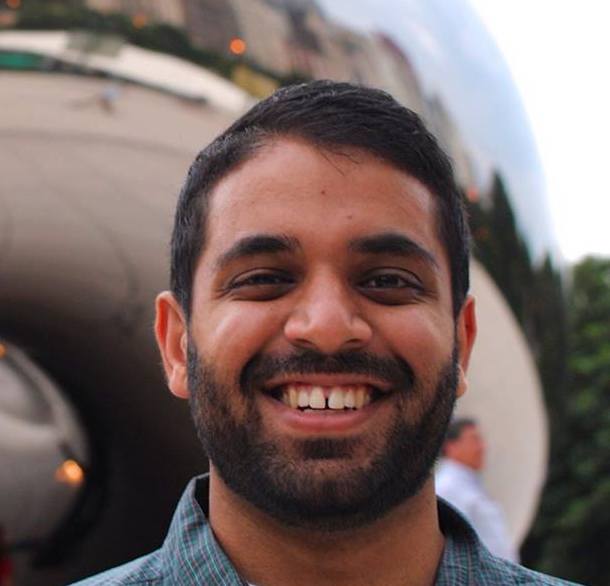 |
Winning Title: "Policing to Segregate: Sketching the Contours of an Eviction Regime in Suburban Los Angeles"
Author: Rahim Kurwa
Affiliation: University of California, Los Angeles
E-mail: rahim.kurwa@gmail.com
Abstract:
Segregation and policing are two critical drivers of racial inequality in the United States, but the limited sociological research on their relationship focuses on how segregation facilitates the disproportionate and extreme policing of minority communities. This paper offers evidence that policing can also be used to create or re-assert segregation. Data substantiating this claim emerge from a case study of white reactions to Black movement into a Los Angeles suburb, through a federal rental assistance program known as the Housing Choice Voucher program. Drawing on interviews with 43 local residents, most of whom are white, I delineate a complex mix of grievances towards Black voucher renters based on race, gender, economics, and perceived social disorder that function as a social basis for policing. I then illustrate how local residents engage in policing by surveilling neighbors they believe are using vouchers, and deploying police and city agencies to fine, arrest, or evict them. As local residents file complaints intended to lead to eviction, they effectively use policing to reproduce segregation. These acts reveal the uniquely participatory nature of policing in a suburban setting and suggest directions for future research on policing and segregation.
SEXUAL BEHAVIOR, POLITICS, AND COMMUNITIES DIVISION
 |
|
Winning Title: “Navigating Reproductive Inequalities: Emotion Work among Lesbian Couples during the Transition to Parenthood”
Author: Sierra Holland
Affiliation: University of Florida
E-mail: sschnable@ufl.edu
Abstract:
Although nonheterosexual individuals have always parented, the recent growth in visibility of planned lesbian families and the shifting legal terrains around their family-building processes create a unique window of opportunity for studying how pathways to parenthood are experienced and conceptualized by lesbian couples. This research follows the reproductive journeys of lesbian couples with specific attention to the intangible or emotional dynamics that accompany the physical processes, drawing on the transition to parenthood and emotion work literature to build an understanding of how lesbian couples navigate the emotional processes involved in making reproductive and parenting choices in a system of institutionalized inequalities. I draw on longitudinal data constructed with 20 long-term, lesbian-identified couples as they navigate the transition to first-time parenthood via donor insemination, defining the transition to parenthood more expansively to include trying-to-conceive (TTC), pregnancy, birth, and early parenthood. I constructed data through modified photovoice interviews with 3 couples and online pregnancy journals with 17 couples; as the data is textual and visual in nature, I combined Charmaz’s constructivist grounded theory and van Leeuwen’s social semiotics approaches to form an inductive and emergent analytical framework that attended to both the textual and visual aspects as equal and inseparable. From this data, three distinct but interwoven processes emerged under the category of navigating emotional complexities in a system of reproductive inequality: mapping an unknown path; managing expectations, especially around concepts like “hope” and “control”; and negotiating potentially different responses to the pressure to achieve (biological) motherhood. Each of these micro-level processes take place in the context of complex medical, legal, and sociocultural inequalities, and by centralizing the voices of lesbian couples as they navigate pathways to parenthood, I bring to the forefront important knowledges from a marginalized group and contest the continued institutional and cultural dismissal of their concerns.
 |
Honorable Mention Title: “Claiming Racial Insider Status while LGB: Same-sex Marriage and Racialized Politics of Respectability”
Author: Jess Lee
Affiliation: University of California, Irvine
E-mail: jessl19@uci.edu
Abstract:
Although support for the legalization of same-sex marriage was widely shared among the LGB community, the reasons for that support among LGB individuals from different socio-demographic backgrounds are poorly understood. Focusing on the perceived impact of same-sex marriage legalization on respondents’ lives, I employ the concept of “politics of respectability” to investigate the relationship between race and favorable perceptions of same-sex marriage legalization among LGB racial minorities. Drawing form the 2010 Social Justice Sexuality survey, two major findings emerge: First, respondents’ perception of homophobia in their respective racial communities is the most significant predictor of their perceived impact of same-sex marriage legalization. Second, LGB racial minorities employ racially-specific frameworks of “politics of respectability” as a stigma management strategy to overcome their marginalization as sexual minorities and claim racial insider statuses, and this shapes their perception of same-sex marriage legalization. This study contributes to our understanding of intersectional stigmas and the social construction of race.
SOCIAL PROBLEMS THEORY DIVISION
 |
|
Winning Title: “Streets of Pity: Urban Panhandling and the Valorization of Misfortune”
Author: Joseph Wallerstein
Affiliation: Harvard University
E-mail: jwallerstein@g.harvard.edu
Abstract:
Neediness is often not sufficient on its own to earn someone the goodwill of others, posing an acute dilemma for impoverished urban panhandlers, whose livelihoods depend on almsgiving. Drawing on ethnographic fieldwork with men soliciting donations in a Chicago neighborhood, I theorize a widely entrenched but little acknowledged pity sector, a part of the larger socioemotional economy, wherein various forms of latent pity capital are actualized and misfortune is valorized. On city street corners and off-ramps, panhandlers embody their real or imagined suffering as they attempt to project and sell adequately, but not excessively, damaged and lamentable dispositions — to render their destitution pitiable and profitable. The pursuit of pity may seem expedient to panhandlers precisely because the emotion is animated and sustained by an afflicted/observer binary and allows them to exploit the symbolic, social, and economic distinctions that already exist between them and passersby. The novelty of this theory is twofold. Conceiving of panhandlers’ subsistence efforts as a dynamic interplay of pity evocation, inward-facing self-respect, and outward-facing respectability — the first of which both relies on and, as it capitalizes on irreparability and equivocation, exists in tension with the second two — amends the findings of classic ethnographies of urban poverty and homelessness. It also shows how the street-level toils of panhandlers mirror core paradoxes of the nonprofit sector and the contemporary American welfare state. I discuss the implications of these findings.
SOCIETY AND MENTAL HEALTH DIVISION
 |
Winning Title: “Exiters of Religious Fundamentalism: Reconstruction of Social Relationships and Support Related to Mental Well-being”
Author: Andreea Nica
Affiliation: Portland State University
E-mail: anica@pdx.edu
Abstract:
Over the past decade, researchers have documented the steady growth of religious “nones” – those who do not affiliate with any organized religion. There is, however, limited research examining religious disaffiliation on health outcomes – that is, how the process of religious disaffiliation or exiting contributes to mental well-being. These trends and gap in the literature make it timely and it is important to consider the impact of leaving religion on the well-being of individuals experiencing this life transition. This qualitative study investigates a particularly understudied subgroup of exiters – individuals who have exited Christian fundamentalist religious groups.
Drawing on 24 in-depth, individual interviews, this research examines how former religious participants reconstruct social relationships and support related to well-being. I employ Iterative Thematic Inquiry or ITI, a new qualitative analytic strategy that focuses on theme development before data collection, through an initial assessment of researcher preconceptions, and that writing, versus coding, is the primary procedure for data analysis. The results demonstrate that while it is challenging in the initial stages of the exiting process to forge and cultivate new social relationships and support; over time, this reconstruction contributes to greater life satisfaction.
SOCIOLOGY AND SOCIAL WELFARE DIVISION
 |
Winning Title: “Hostile Architecture Aimed at People Experiencing Homelessness in Boston, Massachusetts: A Spatial Analysis”
Author: Caitlin A. Carey
Affiliation: University of Massachusetts Boston
E-mail: caitlin.carey001@umb.edu
Abstract:
Hostile architecture involves designing urban spaces in such a way that the space itself discourages certain unwanted behaviors that are often associated with specific groups of people, such as youth, drug users, and people experiencing homelessness. This study aims to better understand the occurrence of hostile architecture aimed at the homeless in the city of Boston, Massachusetts as it relates to a variety of spatial and neighborhood characteristics. Based on the theoretical propositions in David Harvey’s Right to the City, I predicted that examples of hostile architecture aimed at the homeless were more likely to appear farther away from local homeless shelters, in areas zoned for business rather than residential use, and in areas with higher median incomes. A sample area of ten Census Block Groups was randomly selected for analysis, and all examples of hostile architecture aimed at the homeless within the sample area were photographed and geo-tagged. Analysis of the data revealed that examples of hostile architecture aimed at the homeless were more likely to appear farther away from local homeless shelters, in areas zoned for residential rather than business use, and in areas with lower median incomes.
SPORTS, LEISURE, AND THE BODY DIVISION
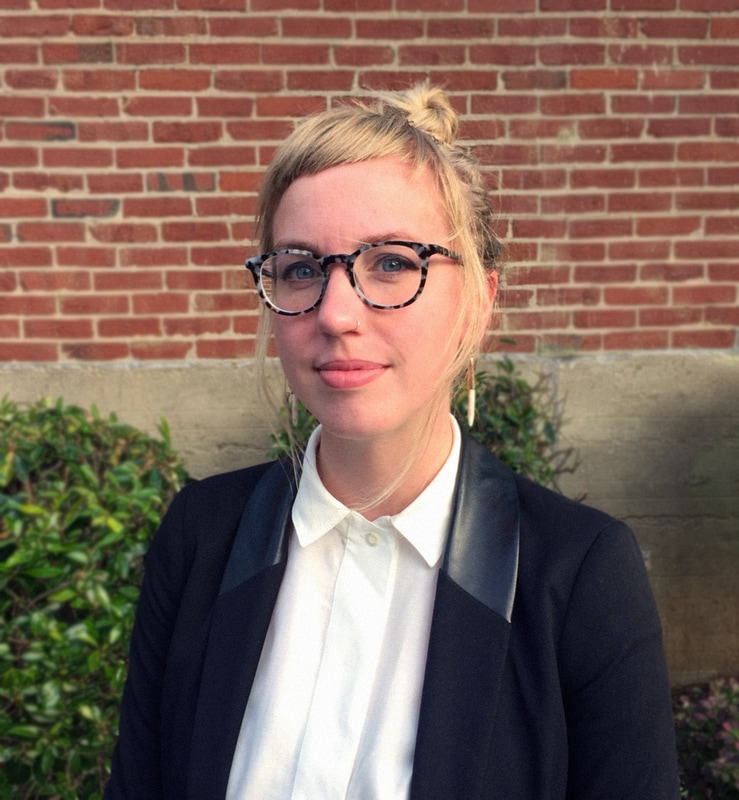 |
Winning Title: “Techno-physical Feminism: Surveillance, Anti-rape Technology and Shifting Risk Paradigms”
Author: Renee M. Shelby
Affiliation: Georgia Tech
E-mail: rshelbycobra@me.com
Abstract:
Anti-rape technology designed to rebuild feminine bodies in a form allegedly more capable of warding off unwanted sexual advances has received global media attention as the new wave in sexual violence prevention. In contrast to physical self-defense that incorporates aspects of martial arts and boxing, inventors doubly frame anti-rape wearables as failsafe, impenetrable bodily barriers that can dispense social justice given endemic sexual violence. Claims that anti-rape wearables transform the wearer’s mind position these technologies as a central site for enmeshing gender and technology. Although popular media accounts frame these technologies as novel innovation, they are derived from historical technologies designed to enhance normative masculinity.
In this article, I trace the history of chastity technologies designed for male and female wearers via patent records from the 1850s through 2016. This analysis reveals inventors subscribe to techno-physical feminism—strategies that utilize technoscience to seemingly transform the wearer’s psychology, corporeal resilience, and agency. Drawing on Wajcman’s technofeminism and McCaughey’s physical feminism, this iteration of techno-physical feminism reinforces dominant gender ideologies, and tends to re-inscribe feminine bodies as passive. This research illuminates shifting and gendered paradigms of risk constructed around sexuality and seeks to re-shape scholarly conversations about power and surveillance.
 |
Honorable Mention Title: “Tenuous Cosmopolitan Canopies: Youth Soccer and Race in the United States”
Author: Alex Manning
Affiliation: University of Minnesota
E-mail: manni224@umn.edu
Abstract:
Youth Soccer in the U.S. is a social formation and an intersectional contested field of social reproduction with implications beyond the soccer field. I demonstrate how various spaces of youth soccer in a Midwest metropolitan city serve as contested racial terrain where racial discourses and racial meaning are constructed, reproduced, negotiated, and challenged. Through targeted ethnography and participant observation at various youth soccer organizations and events in a metro area, and interviews with parents, coaches, and players, I explore the following question: How is the field of youth soccer raced and what does this intersectional cultural arena tell us about how larger social systems of racial inequality and racial discourses appear and shape taken for granted, but prevalent cultural spaces?
I argue that youth soccer in a metropolitan city is a double-edged sword with regards to race because it often represents what Elijah Anderson (2011) refers to as a “cosmopolitan canopy” where people from different social backgrounds interact on a seemingly neutral ground. In addition to the presence of racially, ethnically, and internationally diverse youth soccer spaces, many participants champion the global, inclusive, and progressive potential of the game, and in turn reproduce the popular cultural narrative of sport being a colorblind site of racial progress. On the other edge of the sword I argue that happy diversity discourse and cosmopolitanism canopies of youth soccer are thin, tenuous and contain cracks where exclusive racial and ethnic boundaries are formed and where whiteness and anti-black racial discourse is reproduced.
 |
Honorable Mention Title: “Gender Transgressors in the Change Room: Exploring a Site of Exclusion”
Author: Ali Greey
Affiliation: University of Toronto
E-mail: alison.greey@mail.utoronto.ca
Abstract:
For transgender and gender non-binary individuals the gender-segregated space of the change room is fraught with vulnerability. Although transgender rights have recently erupted onto the North American political agenda, the change room remains a space where a lack of progress is most evident. This paper examines how this space operates as a site for magnifying the exclusion of transgender and gender non-binary individuals from both sport and society. To contextualize how the change room has come to be interwoven with dominant constructions of gender and sexuality as well as the projects of modern sport and nation-building, I begin with a brief history of both the ancient and modern change rooms. I propose, the term gender transgressors, a name intended to foreground how the act of entering the change room comes to be perceived and experienced as an act of trespass. Next, I discuss the limitations of the term transgender when discussing the multiplicity of identities with illegible genders. Finally, I will outline the importance of employing an intersectional analysis to examine how transphobia, homophobia, and racism interact in the change room (Crenshaw, 1989) in a methodological approach which centers racialized transgender bodies and their experiences in change rooms and sport.
TEACHING SOCIAL PROBLEMS DIVISION
 |
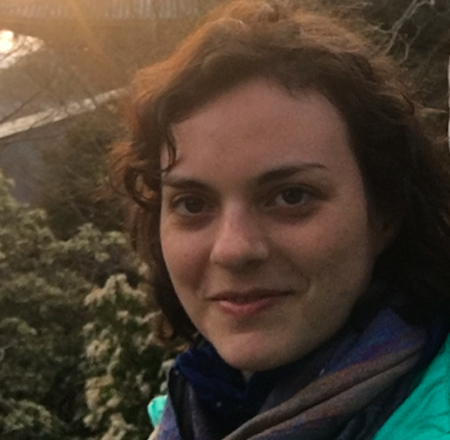 |
 |
 |
Winning Title: “An Assessment of Learning: Understanding Empathy Change in Sociology Undergraduates”
Authors: Ashley Rockwell (top left), Leanna Greenwood (top right), Penny M. Harvey (bottom left), and Chris Vidmar (bottom right)
Affiliation: Georgia State University
E-mail: arockwell3@gsu.edu, lgreenwood2@gsu.edu, pharvey5@GSU.EDU, and c.m.vidmar@gmail.com
Abstract:
Understanding and objectively assessing course goals can be a difficult duty instructors are tasked with. Assessment of an abstract goal, such as the development of empathy in students, can be even more complex. Yet, to be effective instructors we must continue to pursue the goal to understand the effectiveness of our teaching as it aligns with our substantive and non-substantive objectives. In this paper, we outline the research design of a study measuring empathy change in undergraduates taking both introductory sociology and introductory laboratory science classes. We conducted a test of empathy at the beginning and end of one academic semester to track empathy change during the enrollment of an introductory undergraduate course. Preliminary results show that there are significant differences in beginning empathy by gender of students. Implications of this research could demonstrate what factors affect empathy change in the college classroom.
YOUTH, AGING, AND THE LIFE COURSE DIVISION
 |
 |
Winning Title: “From the Hood to the Home: Masculinity Reformation of Chicago Street Gang Members”
Authors: John Leverso and Chris Hess
Affiliation: University of Washington
E-mail: hesscl@uw.edu and jlever5@u.washington.edu
Abstract:
Sociologists have shown that masculinity is a key part of gang membership, and that members tend to leave gangs as they age and mature. Despite these findings, scholars have paid scant attention to how gang members’ masculinities unfold over the life course. Recent research found that faith-based gang recovery programs help reformulate gang masculinity as individuals transition out of gangs, but we still know very little about how men reformulate masculinity outside of recovery contexts. This study draws on interviews with 29 former gang members to address this gap. We found that individuals join gangs because the gang is a viable masculinity resource. Given their structural constraints, the gang is a place where one can gain, through activities associated with the gang, a masculine identity, with related notions of respect and honor. Masculinity reformation is also associated with changing definitions, and associated behaviors, of masculinity at different points in the life course. We identified three pathways to masculinity reformation: individuals merge gang masculinities with conventional masculinities; they transition to other masculinities completely, or; they use negative affect toward the gang as a guiding force behind masculinity reformation.
